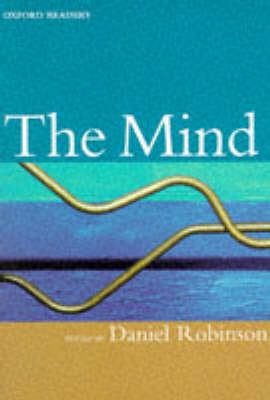Oxford Readers
1 total work
At the end of the twentieth century, it might seem that questions about the nature of the mind are best left to scientists - psychologists, neurophysiologists, and even computer programmers. Modern technology has provided not only artificial versions of what seems to be highly developed 'intelligence', but also high-fidelity imaging techniques for visualizing the human brain in action. How could the views of Aristotle or Descartes or Kant possibly contribute anything to debates about these issues, when the relevant neurophysiological facts and principles were completely unknown to them? As this Oxford Reader shows, the arguments of philosophers throughout history still provide essential insights into contemporary questions about the mind, and help to clarify the underlying scientific assumptions. Contributions from thinkers ranging from Plato and Locke to Roger Penrose and Oliver Sacks show that appreciating the full complexity of debates about consciousness, intelligence, and perception demands attention to fundamental questions which have occupied philosophers for over two thousand years.
